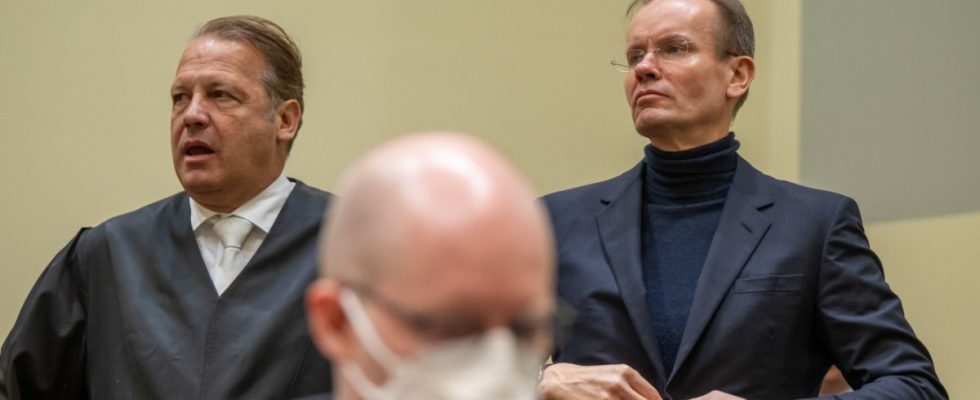When Alfred Dierlamm has finished his remarks, he raises his head and looks towards the audience. It seems as if he wanted to estimate who followed his lecture. The Wirecard process has reached a phase in which interest is waning. For Dierlamm, top defender of ex-Wirecard boss Markus Braun, this means: little audience.
In his statement, Dierlamm said on Wednesday that the hearing of the witnesses Sven-Olaf Leitz, Alexander Geschonneck and Franz Haider revealed “serious deficiencies” in the special investigation by the auditor KMPG. The three named, all in managerial positions at KMPG, Leitz even on the board of directors, had testified in court in the past few weeks and accused the former employees of Wirecard of trying to exert influence and lack of cooperation. “We were never convinced by what we saw,” said Leitz.
Dierlamm, in turn, now accuses the examiners of not having considered the crucial documents and files at all or of simply being unqualified for their job. For example, KPMG failed to carry out an e-mail analysis. Dierlamm says that it is “absolute standard” for a special investigation of this kind, and “reliable clarification” is not usually possible without such an evaluation.
Three-digit million contributions flowed into “embezzlement companies”.
KPMG should clarify whether Wirecard now has a honest business model and whether the balance sheets of the Aschheim payment service provider are consistent. The group itself commissioned the auditors to do this in December 2019. The core of this special investigation was primarily about Wirecard’s business with third-party partners. These were companies that were supposed to take care of payments for customers in countries where Wirecard did not have the appropriate licenses or whose business model was too risky to take them directly on their own books on behalf of and through Wirecard.
For years, this third-party business accounted for Wirecard’s profit and sales. When it finally came out in the summer of 2020 that the two billion euros were not in trust accounts in Asia, Wirecard collapsed and the group had to file for bankruptcy. Ex-CEO Braun is therefore on trial – and the thesis in the room that the third-party business never existed.
His defense attorney Alfred Dierlamm takes the view that the deal is real and that his client has been betrayed – by a gang led by the fugitive ex-CEO Jan Marsalek and Oliver Bellenhaus, who is also accused, Wirecard’s former governor in Dubai. Dierlamm believes the auditors from KMPG could have found out about the gang early on if they had only looked at the third-party partners’ accounts at Wirecard Bank. Amounts in the three-digit million range flowed into these accounts and later seeped into various “embezzlement companies”.
For Dierlamm, it was “completely incomprehensible” that Franz Haider was responsible for investigating third-party business at KMPG. Haider himself would have admitted in court that he had never taken part in a forensic investigation and had no experience with payment service providers. He was “obviously unsuitable” for the test, according to Dierlamm.

